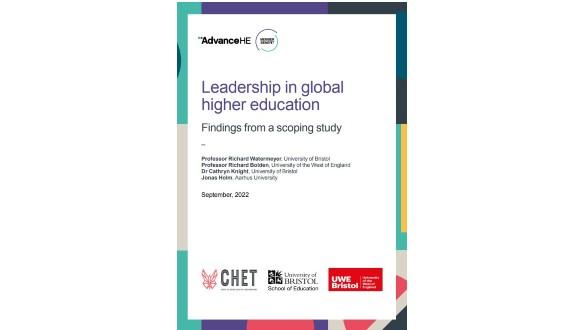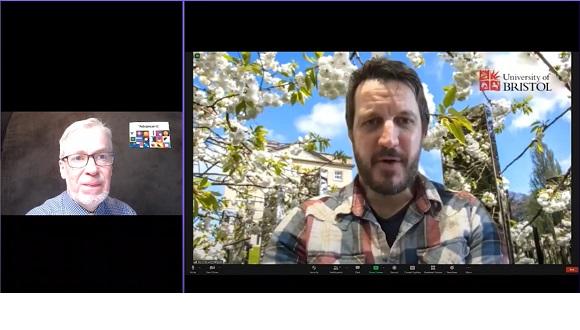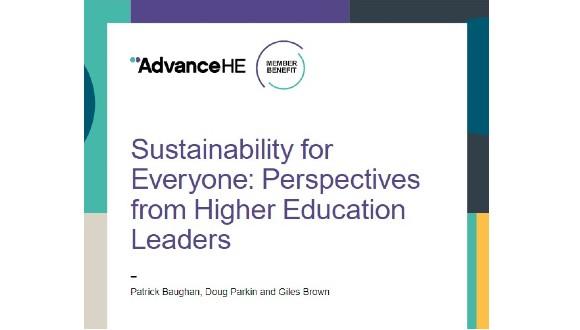Doug's key interests include educational and research leadership, the leadership of professional services, strategy development, leading change, and leading with emotional intelligence. An accomplished teacher, facilitator, coach, author and conference speaker, Doug has achievements across a wide range of leadership, educational and organisational development projects.
Prior to this he was Head of Staff and Educational Development at the London School of Hygiene and Tropical Medicine (LSHTM - University of London). This was a wide-ranging senior role that included responsibility for academic development, educational development, leadership development, EDI awareness and core workplace skills.
Alongside his passion for leadership development, Doug has also demonstrated a strong commitment to enhancing the quality of learning, teaching and assessment in Higher Education. He is a Principal Fellow (awarded by Advance HE) and was Course Director of the highly successful Postgraduate Certificate in Learning and Teaching at the LSHTM, a course he designed and launched in 2006. He is also the author of Leading Learning and Teaching in Higher Education: The Key Guide to Designing and Delivering Courses, which was published by Routledge in 2016.
Coaching
Find out more about Advance HE One-to-One Executive Coaching services.
Having specialised in adult learning and development in all its forms for over twenty years, most recently in the context of higher education leadership, Doug brings a unique presence and perspective to executive coaching. Stemming from a belief in human potential that “people are naturally creative, resourceful and whole”[1] Doug as a coach offers a neutral, listening presence whose role it is to notice, reflect, challenge and support.
[1] Kimsey-House, H., Kimsey-House, K., Sandahl, P., and Whitworth, L. (2011) Co-Active Coaching: Changing Business, Transforming Lives (3rd Edition). Boston, USA: Nicholas Brealey Publishing.
Coaching experience at a senior level
Doug has worked as a coach with middle and senior level leaders in a range of sectors and settings. In his wider role as a programme facilitator he has delivered an extensive variety of leadership development projects both nationally and internationally.
Coaching experience in Higher Education
Within Higher Education Doug has coached senior leaders with institution-wide remits, and others focussed on faculty or divisional responsibilities and challenges. He has also coached colleagues in relation to 360° diagnostic feedback and the development of ongoing leadership development plans.
Coaching style, approach and influences
Doug’s approach to coaching is fundamentally non-directive. Working with leaders, usually middle and senior leaders in the university context, he sees his primary coaching role as that of a neutral listening presence. Helping leaders to explore their leadership values and identity, to reconnect with their authentic selves and their purpose, ignites enhanced decision making and improves leadership communication and relationships, particularly during periods of change and transition. Through powerful listening and drawing upon a wide range of coaching models, and underpinning psychology, including co-active coaching, the solutions focussed approach and ideas from the world of Gestalt, Doug encourages colleagues to develop new insights in the here-and-now that can hold the key to future decisions and performance.
Examples of issues explored in coaching sessions
- Balancing a senior leadership position with a significant international research portfolio;
- Taking on a senior leadership role for the first time;
- Leading a newly restructured area through a period of significant change;
- Creating impact and influence within a new organisational setting;
- Improving key relationships and adapting styles of interpersonal communication;
- Workload management and personal resilience;
- Career development options and choices – career crossroads;
- 360° diagnostic feedback and the development of ongoing leadership development plans.
Professional background
Doug has worked in adult learning and development for over twenty years. With experience across a range of organisations and sectors, from the civil service to the arts, from large UK charities to Higher Education, he has explored and considered leadership from a wide range of perspectives: academic leadership, educational leadership, medical leadership, the leadership of public services, leadership in the arts, and leadership in a not-for-profit, voluntary sector environment. He has been responsible for leadership and management development in a variety of public sector roles, including on accredited programmes, and is both a Fellow of the Chartered Management Institute and a member of the Institute of Leadership and Management.
Alongside his passion for leadership development, Doug has also demonstrated a strong commitment to enhancing the quality of learning, teaching and assessment in Higher Education. He is a Fellow of the Higher Education Academy.
Qualifications and accreditations
Doug holds a Practitioner Diploma in Executive Coaching and is accredited as an Associate Executive Coach by the Academy of Executive Coaching.
Doug has developed and run courses on coaching skills for managers and encourages leaders to develop the ‘ask don’t tell’ habit by adopting whenever appropriate a coaching style.
Case Studies
- Coached a Dean of Faculty who was also a member of the university executive on the challenge of balancing these responsibilities with a significant ongoing research portfolio which included leading a major international research centre. Beneath the surface of this challenge there were some critical questions to be explored regarding personal values and priorities, and also on a more practical level difficult choices to be made regarding things like international travel, responding to a variety of invitations and ‘discretionary’ commitments, and crucially finding the confidence and trust needed to delegate effectively.
- Coached a newly appointed Divisional Director (academic) regarding both the opportunities presented by moving into an enhanced leadership role and the challenge of taking forward a diverse group of colleagues within a recently restructured area. Some of the key themes explored included developing a shared vision, energising the group through collaborative engagement, and the politics involved and how these could be read and interpreted.
Accredited Diagnostic Tools
- Real World Group, TLQ 360
- Myers Briggs Type Indicator (MBTI) – Step 1
- MBTI – Step 2
- Team Management Profile (TMSDI)
- Organizational Values Profile (TMSDI)
- Opportunities-Obstacles Profile (TMSDI)






